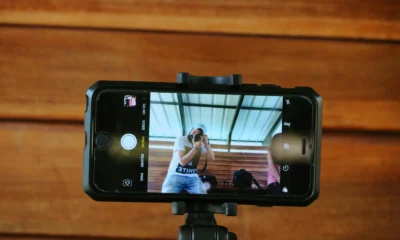Twitter rebrands with X logo after Musk vow to eliminate ‘all the birds’
Business
Elon Musk’s Twitter is a ‘$44 billion albatross’ a year later on October 31, 2023 at 10:00 am Business News | The Hill
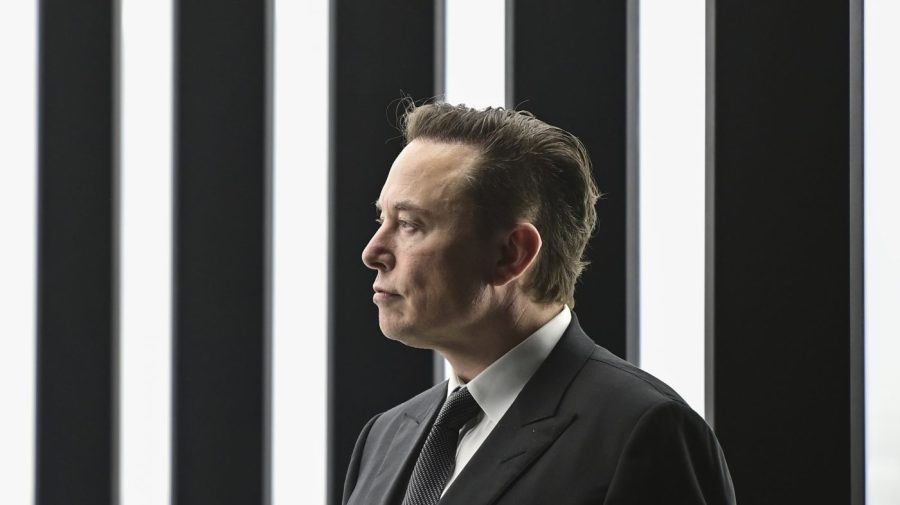
Late last October, Elon Musk officially closed a deal to acquire the platform then known as Twitter for $44 billion after months of legal proceedings and threats to back out of the purchase.
“The bird is freed,” Musk tweeted the night the deal was finalized, in an apparent reference to Twitter’s iconic bird logo and his plans to transform the site into a “platform for free speech around the globe.”
The mercurial billionaire’s takeover was met with varying levels of alarm as he quickly fired top executives, cut half of the company’s workforce and rolled out and walked back various policy changes.
One year later, experts described the platform now known as X as “unrecognizable” and “completely useless.” The fallout from Musk’s stewardship, they argue, was “much more serious” than they previously could have imagined.
Musk lives up to initial fears, expectations early on
When Musk initially offered to buy Twitter in April 2022, some pointed to his business prowess as the head of both Tesla and SpaceX as a potential benefit from a takeover.
However, Claire Wardle, the co-founder and co-director of Brown University’s Information Futures Lab, said she immediately had her doubts.
“There was a lot of people like, ‘Well, look what he did with Tesla … He’s a great businessman. Therefore, he’s going to be a great leader of Twitter,’” Wardle told The Hill. “And I think I was kind of surprised by that because the truth is, content moderation is really hard.”
“I just kept thinking, ‘I’m not quite sure this man, who has no experience in content moderation or thinking about how these platforms work within the context of democracies — it just seems a strange decision for him to be the leader,” she said.
Musk officially took control of Twitter on Oct. 27, assuring advertisers that the platform “obviously cannot become a free-for-all hellscape, where anything can be said with no consequences!”
Lawrence Lessig, a Harvard Law professor part of the university’s new Applied Social Media Lab, noted that the billionaire came to Twitter with “an extraordinarily naïve view” of free speech.
“The idea that there’s such a thing as a platform that ‘allows all speech’ is just crazy talk. There is no such platform,” Lessig said.
“There’s no publishing platform that has ever in the history of man embraced that and for good reason. It inspires and brings out the worst in culture,” he added.
Musk immediately fired several top executives, including chief executive Parag Agrawal, chief financial officer Ned Segal and chief legal officer Vijaya Gadde. Notably, Gadde was also in charge of trust and safety matters at the company.
Just days later, reports emerged that racist and antisemitic tweets were spreading rapidly on Twitter. Musk briefly launched his first attempt to turn the platform’s traditional verification system into a paid feature in early November before rolling it back as accounts impersonating public figures wreaked chaos.
Within weeks, he had reinstated the accounts of former President Trump, who had been banned in the wake of the Jan. 6 riot, and the rapper formerly known as Kanye West, who was barred for posting antisemitic messages.
Musk also rolled back Twitter’s policy barring COVID-19 misinformation, dismantled the company’s Trust and Safety Council and temporarily banned several journalists covering the billionaire’s feud with an account tracking his private jet.
One year later, X is ‘unrecognizable’
The platform, which Musk rebranded as X earlier this year, faced a deluge of misinformation and disinformation this month following the attacks by the Palestinian militant group Hamas on Israel and Israel’s subsequent bombardment of Gaza.
Old and unrelated photos and videos — and even video game footage — were misrepresented as current and genuine. A fake memo claimed that President Biden had sent $8 billion in military aid to Israel. Accounts posing as official news outlets spread false claims about the conflict.
The spread of misinformation and disinformation, which has similarly plagued other social media platforms, has been been a particular problem for X in the wake of Musk’s takeover.
A report released last month found that X had the highest ratio of misinformation and disinformation out of several major social media platforms.
Wardle noted that X’s blue checkmarks previously served as important “heuristics” and “mental shortcuts” to tell users whether they could trust information from accounts.
However, the checkmarks — which used to denote that an account from a government official, media organization or public figure had been verified — now indicate whether someone has paid for the platform’s subscription service.
“We knew that [removing them] was going to be a disaster,” Wardle said. “And then of course, we’ve seen over the last three weeks that it really is all the things that we feared.”
Jennifer Grygiel, an associate professor of communications at Syracuse University, said the transformation of the blue checkmark system has also “changed the usefulness and value” of the platform for journalists and news publishers.
“When I think of the old Twitter … it was influential because it was the fastest kind of wire that we’d ever seen,” Grygiel told The Hill. “It felt like it was where public discourse happened because it was so fast. It felt conversational.”
Prior to the takeover last year, the platform had taken on a role as “the place that people would turn to in breaking news situations,” Wardle added.
“Every department of health, every emergency unit across the world … they saw Twitter as a way to communicate in real time, knowing that it was either gonna go directly to citizens or it was gonna get picked up by journalists, who would then report it,” she said.
Under Musk’s leadership, “that’s all changed,” Grygiel said. “Maybe he purchased Twitter, but it’s unrecognizable.”
Musk faces ‘myriad’ challenges but X remains standing
Musk’s $44 billion purchase of the social media company, which is currently worth an estimated $10 billion, has left him with a “myriad of financial and execution challenges,” Wedbush analyst Dan Ives said in a statement to The Hill.
“This remains a $44 billion albatross for Musk to recoup his investments,” he added.
Without making changes to X’s content moderation policies and bringing back advertisers, Wardle said she “can’t see a future” for the platform.
“I don’t see a way out unless things fundamentally changed, and I don’t think he would be the sort of person that would want to fundamentally change those things,” she said.
However, despite Musk’s chaotic tenure at the company, there has not yet been a mass exodus from X, Grygiel noted. The various alternatives that have emerged, including Meta’s Threads, have largely failed to gain traction so far.
“It has a social function still, it still has a business function too,” they said. “So in the absence of alternatives, I think we still see big brands out there using this. Maybe there’s less advertising, but it’s still there.”
Technology, Business, News, content moderation, disinformation, Israel-Hamas conflict, misinformation, Threads, Twitter, Twitter takeover, Twitter verification Late last October, Elon Musk officially closed a deal to acquire the platform then known as Twitter for $44 billion after months of legal proceedings and threats to back out of the purchase. “The bird is freed,” Musk tweeted the night the deal was finalized, in an apparent reference to Twitter’s iconic bird logo and…
Business
How Trump’s Tariffs Could Hit American Wallets

As the debate over tariffs heats up ahead of the 2024 election, new analysis reveals that American consumers could face significant financial consequences if former President Donald Trump’s proposed tariffs are enacted and maintained. According to a recent report highlighted by Forbes, the impact could be felt across households, businesses, and the broader U.S. economy.

The Household Cost: Up to $2,400 More Per Year
Research from Yale University’s Budget Lab, cited by Forbes, estimates that the average U.S. household could pay an additional $2,400 in 2025 if the new tariffs take effect and persist. This projection reflects the cumulative impact of all tariffs announced in Trump’s plan.
Price Hikes Across Everyday Goods
The tariffs are expected to drive up consumer prices by 1.8% in the near term. Some of the hardest-hit categories include:
- Apparel: Prices could jump 37% in the short term (and 18% long-term).
- Footwear: Up 39% short-term (18% long-term).
- Metals: Up 43%.
- Leather products: Up 39%.
- Electrical equipment: Up 26%.
- Motor vehicles, electronics, rubber, and plastic products: Up 11–18%.
- Groceries: Items like vegetables, fruits, and nuts could rise up to 6%, with additional increases for coffee and orange juice due to specific tariffs on Brazilian imports.

A Historic Tariff Rate and Economic Impact
If fully implemented, the effective tariff rate on U.S. consumers could reach 18%, the highest level since 1934. The broader economic consequences are also notable:
- GDP Reduction: The tariffs could reduce U.S. GDP by 0.4% annually, equating to about $110 billion per year.
- Revenue vs. Losses: While tariffs are projected to generate $2.2 trillion in revenue over the next decade, this would be offset by $418 billion in negative economic impacts.
How Businesses Are Responding
A KPMG survey cited in the report found that 83% of business leaders expect to raise prices within six months of tariff implementation. More than half say their profit margins are already under pressure, suggesting that consumers will likely bear the brunt of these increased costs.

What This Means for Americans
The findings underscore the potential for substantial financial strain on American families and businesses if Trump’s proposed tariffs are enacted. With consumer prices set to rise and economic growth projected to slow, the debate over tariffs is likely to remain front and center in the months ahead.
For more in-depth economic analysis and updates, stay tuned to Bolanlemedia.com.
Business
U.S. Limits Nigerian Non-Immigrant Visas to Three-Month Validity

In July 2025, the United States implemented significant changes to its visa policy for Nigerian citizens, restricting most non-immigrant and non-diplomatic visas to a single entry and a maximum validity of three months. This marks a departure from previous policies that allowed for multiple entries and longer stays, and has important implications for travel, business, and diplomatic relations between the two countries.

Key Changes in U.S. Visa Policy for Nigerians
- Single-Entry, Three-Month Limit: As of July 8, 2025, most non-immigrant visas issued to Nigerians are now valid for only one entry and up to three months.
- No Retroactive Impact: Visas issued prior to this date remain valid under their original terms.
- Reciprocity Principle: The U.S. cited alignment with Nigeria’s own visa policies for U.S. citizens as the basis for these changes.
- Enhanced Security Screening: Applicants are required to make their social media accounts public for vetting, and are subject to increased scrutiny for any signs of hostility toward U.S. institutions.

Rationale Behind the Policy Shift
- Security and Immigration Integrity: The U.S. government stated the changes are intended to safeguard the immigration system and meet global security standards.
- Diplomatic Reciprocity: These restrictions mirror the limitations Nigeria imposes on U.S. travelers, emphasizing the principle of fairness in international visa agreements.
- Potential for Further Action: The U.S. has indicated that additional travel restrictions could be introduced if Nigeria does not address certain diplomatic and security concerns.

Nigeria’s Updated Visa Policy
- Nigeria Visa Policy 2025 (NVP 2025): Introduced in May 2025, this policy features a new e-Visa system for short visits and reorganizes visa categories:
- Short Visit Visas (e-Visa): For business or tourism, valid up to three months, non-renewable, processed digitally within 48 hours.
- Temporary Residence Visas: For employment or study, valid up to two years.
- Permanent Residence Visas: For investors, retirees, and highly skilled individuals.
- Visa Exemptions: ECOWAS citizens and certain diplomatic passport holders remain exempt.
- Reciprocal Restrictions: Most short-stay and business visas for U.S. citizens are single-entry and short-term, reflecting reciprocal treatment.

Impact on Travelers and Bilateral Relations
- Nigerian Travelers: Face increased administrative requirements, higher costs, and reduced travel flexibility to the U.S.
- U.S. Travelers to Nigeria: Encounter similar restrictions, with most visas limited to single entry and short duration.
- Diplomatic Tensions: Nigerian officials have called for reconsideration of the U.S. policy, warning of negative effects on bilateral ties and people-to-people exchanges.
Conclusion
The U.S. decision to limit Nigerian non-immigrant visas to three months highlights the growing complexity and reciprocity in global visa regimes. Both countries are tightening their policies, citing security and fairness, which underscores the need for travelers and businesses to stay informed and adapt to evolving requirements.
Business
Nicki Minaj Demands $200 Million from Jay-Z in Explosive Twitter Rant
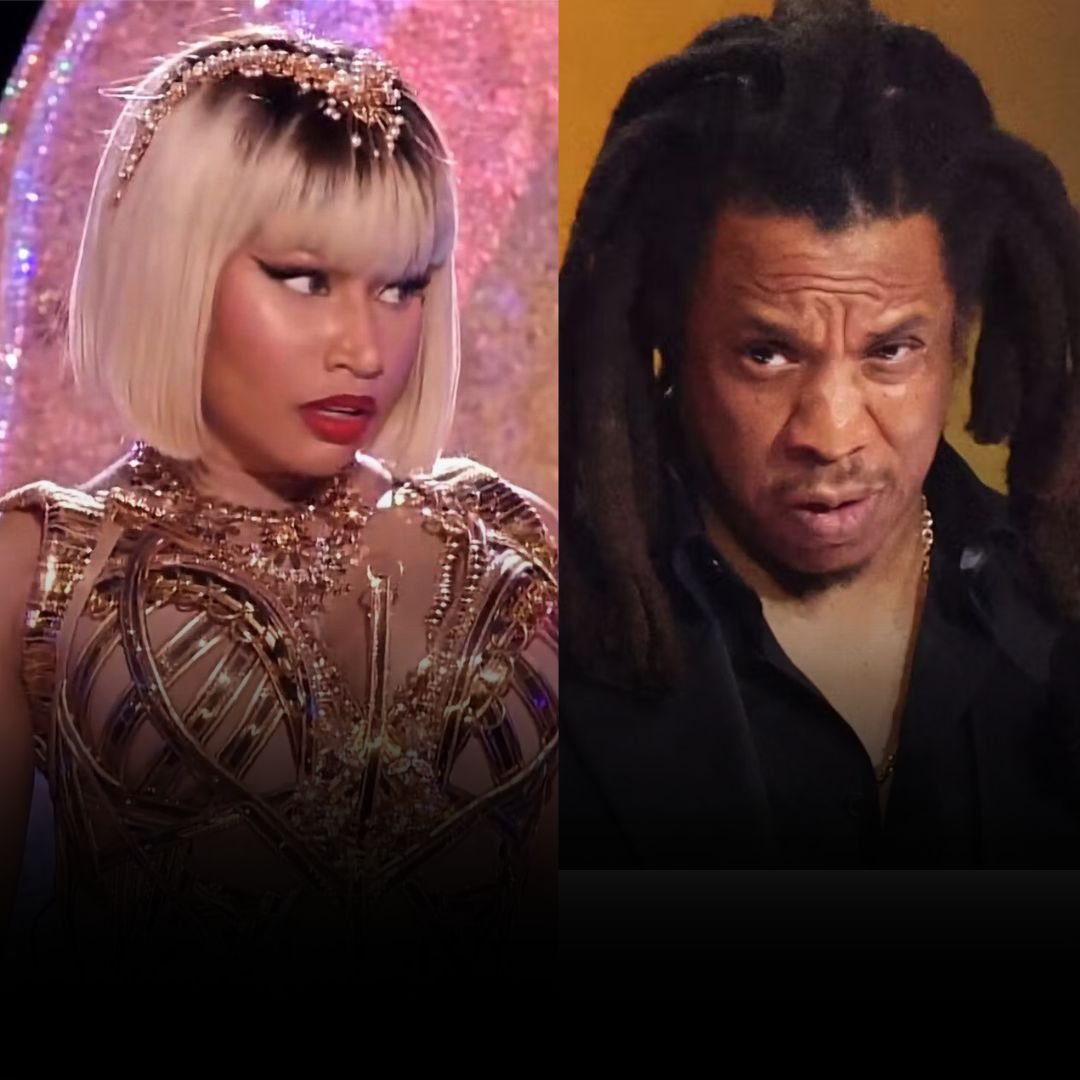
Nicki Minaj has once again set social media ablaze, this time targeting Jay-Z with a series of pointed tweets that allege he owes her an eye-popping $200 million. The outburst has reignited debates about artist compensation, industry transparency, and the ongoing power struggles within hip-hop’s elite circles.

The $200 Million Claim
In a string of tweets, Minaj directly addressed Jay-Z, writing, “Jay-Z, call me to settle the karmic debt. It’s only collecting more interest. You still in my top five though. Let’s get it.” She went further, warning, “Anyone still calling him Hov will answer to God for the blasphemy.” According to Minaj, the alleged debt stems from Jay-Z’s sale of Tidal, the music streaming platform he launched in 2015 with a group of high-profile artists—including Minaj herself, J. Cole, and Rihanna.
When Jay-Z sold Tidal in 2021, Minaj claims she was only offered $1 million, a figure she says falls dramatically short of what she believes she is owed based on her ownership stake and contributions. She has long voiced dissatisfaction with the payout, but this is the most public—and dramatic—demand to date.
Beyond the Money: Broader Grievances
Minaj’s Twitter storm wasn’t limited to financial complaints. She also:
- Promised to start a college fund for her fans if she receives the money she claims is owed.
- Accused blogs and online creators of ignoring her side of the story, especially when it involves Jay-Z.
- Warned content creators about posting “hate or lies,” saying, “They won’t cover your legal fees… I hope it’s worth losing everything including your account.”
She expressed frustration that mainstream blogs and platforms don’t fully cover her statements, especially when they involve Jay-Z, and suggested that much of the coverage she receives is from less reputable sources.
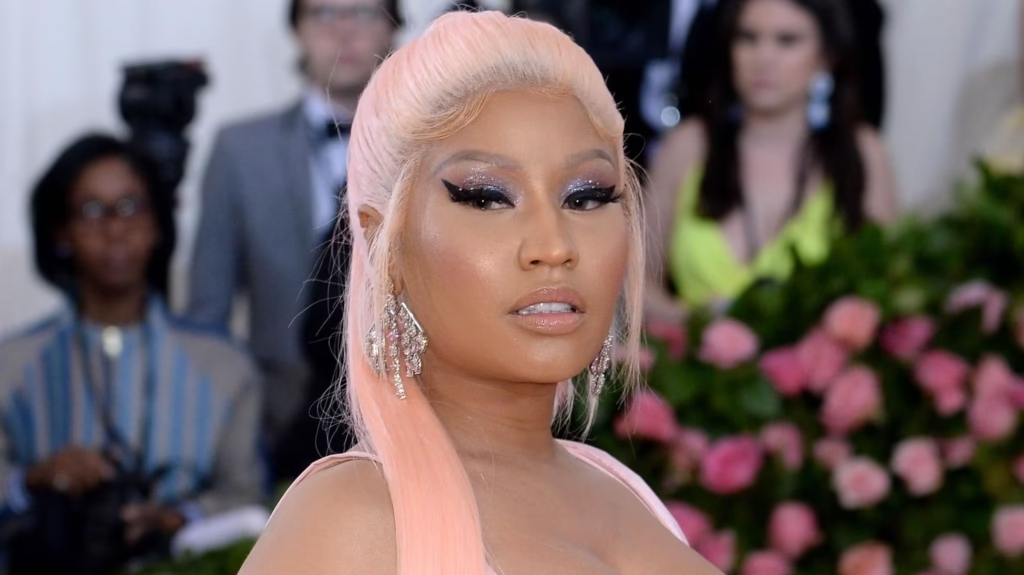
Satirical Accusations and Industry Critique
Minaj’s tweets took a satirical turn as she jokingly blamed Jay-Z for a laundry list of cultural grievances, including:
- The state of hip-hop, football, basketball, and touring
- The decline of Instagram and Twitter
- Even processed foods and artificial dyes in candy
She repeatedly declared, “The jig is up,” but clarified that her statements were “alleged and for entertainment purposes only.”
Political and Cultural Criticism
Minaj also criticized Jay-Z’s political involvement, questioning why he didn’t campaign more actively for Kamala Harris or respond to President Obama’s comments about Black men. While Jay-Z has a history of supporting Democratic campaigns, Minaj’s critique centered on more recent events and what she perceives as a lack of advocacy for the Black community.
The Super Bowl and Lil Wayne
Adding another layer to her grievances, Minaj voiced disappointment that Lil Wayne was not chosen to perform at the Super Bowl in New Orleans, a decision she attributes to Jay-Z’s influence in the entertainment industry.
Public and Industry Reaction
Despite the seriousness of her financial claim, many observers note that if Minaj truly believed Jay-Z owed her $200 million, legal action—not social media—would likely follow. As of now, there is no public record of a lawsuit or formal complaint.
Some fans and commentators see Minaj’s outburst as part of a larger pattern of airing industry grievances online, while others interpret it as a mix of personal frustration and performance art. Minaj herself emphasized that her tweets were “for entertainment purposes only.”
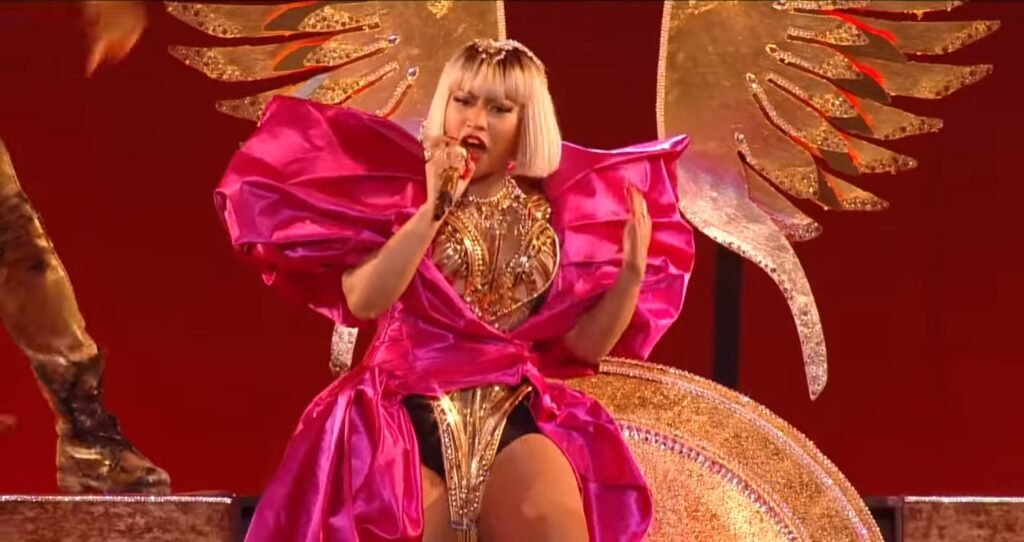
Conclusion
Nicki Minaj’s explosive Twitter rant against Jay-Z has once again placed the spotlight on issues of artist compensation and industry dynamics. Whether her claims will lead to further action or remain another dramatic chapter in hip-hop’s ongoing soap opera remains to be seen, but for now, the world is watching—and tweeting.

 Business1 week ago
Business1 week agoPros and Cons of the Big Beautiful Bill

 Advice2 weeks ago
Advice2 weeks agoWhat SXSW 2025 Filmmakers Want Every New Director to Know

 Film Industry3 weeks ago
Film Industry3 weeks agoFilming Yourself and Look Cinematic

 News2 weeks ago
News2 weeks agoFather Leaps Overboard to Save Daughter on Disney Dream Cruise

 Politics4 weeks ago
Politics4 weeks agoBolanle Newsroom Brief: Israel Strikes Iran’s Nuclear Sites — What It Means for the World

 Health2 weeks ago
Health2 weeks agoMcCullough Alleges Government Hid COVID Vaccine Side Effects

 Advice2 weeks ago
Advice2 weeks agoWhy 20% of Us Are Always Late

 Advice2 weeks ago
Advice2 weeks agoHow to Find Your Voice as a Filmmaker

















